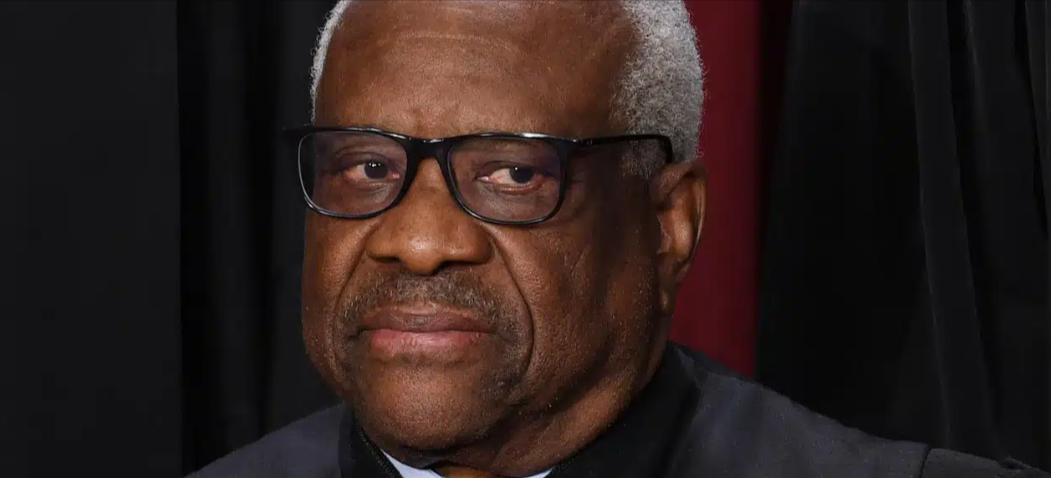Thomas Blasts Supreme Court For Allowing Retrial In Hammer Robbery Case

Justice Clarence Thomas, a conservative member of the U.S. Supreme Court, delivered sharp criticism of the Court this week after it declined to review a lower court ruling that overturned the conviction of David M. Smith, an Ohio man sentenced to 22 years for a brutal hammer assault.
The U.S. Court of Appeals for the 6th Circuit had ruled last year that the process used to identify Smith violated his due process rights, a decision that now paves the way for a retrial. In a dissenting opinion, Thomas expressed strong disapproval of the 6th Circuit’s handling of Smith’s habeas corpus petition, arguing that the retrial directive was a mistake. Justice Samuel Alito, another conservative on the bench, joined Thomas in dissent.
Thomas took issue with how the 6th Circuit applied the Antiterrorism and Effective Death Penalty Act (AEDPA), a law that limits the authority of federal courts to overturn state court convictions.
“The Sixth Circuit’s decision is the latest in a long line of blatant AEDPA abuses,” Thomas wrote, warning that the lower court’s ruling undermines the authority of state courts and poses serious challenges for both victims and law enforcement.
“Retrials inflict substantial pain on crime victims” and increase the risk that “perpetrators of violent crimes go free,” Thomas added.
Smith had been convicted of attempting to kill Quortney Tolliver in 2015 after she was viciously attacked in her home, suffering severe skull and facial fractures from multiple hammer blows. Although Tolliver identified Smith as her attacker several weeks after the assault, the appeals court determined that the identification process was “unduly suggestive” and unreliable.
Ohio Attorney General David Yost (R) defended the original conviction, arguing that Smith was tied to the crime through DNA evidence and phone records. Yost also criticized the 6th Circuit for overstepping its bounds in ordering a retrial.
“The Sixth Circuit not only mishandled the law of eyewitness testimony, it fumbled the law that sets the rule of decision for federal habeas courts,” Yost argued in a brief submitted to the Supreme Court in October.
The Supreme Court’s refusal to hear the case on Monday marked the second time it declined to reconsider the 6th Circuit’s decision. The first denial occurred in November when the Court rejected an earlier petition.
Thomas cautioned that retrying a case nearly a decade old would strain resources, risk the loss of key evidence, and further traumatize the victim.
“Retrial diverts significant time and resources away from other law enforcement activities, and it is often ‘more difficult’ because of ‘the erosion of memory’ and ‘dispersion of witnesses’ that accompany the passage of time,” Thomas wrote.
Despite Thomas’s concerns, prosecutors retain the option to pursue a retrial under the guidelines established by the appeals court since the Supreme Court declined to intervene.
Meanwhile, the Supreme Court made headlines in a separate legal dispute.
The justices rejected an effort by Montana Republicans to invoke a version of the so-called “independent state legislature” theory in an attempt to reinstate two state election laws.
The more expansive interpretation of this theory, which the Court rejected in 2023, would have given state legislatures near-total control over election rules, limiting the ability of state courts to intervene.
While the Supreme Court affirmed that state courts can conduct judicial reviews, the majority opinion clarified that such reviews do not grant courts “free rein.”
The Court stopped short of setting a definitive standard for when the Elections Clause in the Constitution bars judges from interfering in state lawmakers’ authority over federal election procedures.
Montana Secretary of State Christi Jacobsen (R) appealed to the Supreme Court to revisit this issue, seeking to revive two state laws that prohibited same-day voter registration and paid ballot collection on election day. The Montana Supreme Court had struck down these laws in a 5-2 ruling, deeming them unconstitutional under state law, following a challenge brought by the Montana Democratic Party and other groups.
Jacobsen, represented by Montana Attorney General Austin Knudsen (R), argued that the state’s highest court had overstepped its role. “In short, the Montana Supreme Court has assumed a de facto new role as the final and exclusive arbiter of all federal election legislation in Montana. This Court’s review is urgently needed,” she wrote in court filings.
Her petition received support from the National Republican Senatorial Committee, 15 Republican state attorneys general, and the America First Legal Foundation. However, Montana Democrats urged the Supreme Court to uphold the lower court’s ruling, arguing that it was firmly grounded in established legal principles.
“The court’s analysis was based on the ample trial record in this case and firmly grounded in existing Montana law. There was nothing extraordinary or inappropriate about it,” they wrote in their response to the justices, as reported by The Hill.